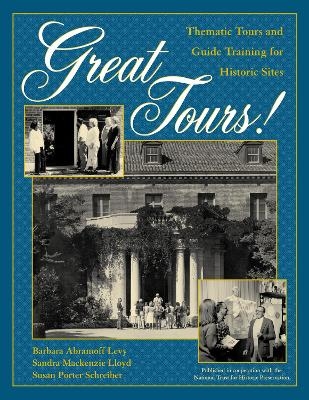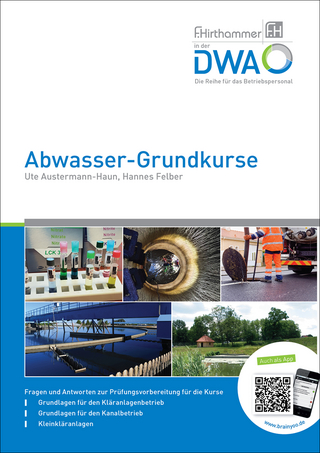
Great Tours!
Rowman & Littlefield Publishers (Verlag)
978-0-7591-0099-2 (ISBN)
Creating tours that are interesting and educational for visitors (and guides!) is a challenge every historic site faces. Great Tours! helps you focus clearly on the material culture and significance of your site and then shows you how to use that focus to train and energize your guides. You will be able to move your tours to a fresh new level that is engaging and educational for visitors of all ages and abilities. Readings and workshop activities frame the process throughout and allow you to develop what is most appropriate for your site, while working to strike a realistic balance between ideals and every day reality. Great Tours! offers a unique combination of theoretical guidance and practical activities, supplemented by reproducible forms and a bibliography and index, that make it an invaluable resource for anyone involved with planning tours and training guides. Published in cooperation with the National Trust for Historic Preservation. Visit their web page.
Barbara A. Levy first practiced her interpretation skills as a choral conductor, singer, and music teacher. Although she moved on to work in the historic site field, her experiences in music and teaching confirmed her belief that interpretation in any field required understanding and effective communication. Her professional commitment to creating great interpretive experiences at historic sites began when she was the Interpretation Planner for the Massachusetts Department of Environmental Management, Planning Division, and continued when she became Director of Education and Interpretation for the Society for the Preservation of New England Antiquities. In 1993 she founded Barbara Levy Associates, a consulting group that has helped history museums and historical organizations across the country improve their interpretation, planning, and education programs. Well known as a skilled interpretive planner, teacher, and trainer, she is also a frequently requested presenter at regional and national professional conferences. She holds a B.M.A (with distinction) from the University of Michigan, and both M.M.A and M.A degrees from Boston University. Sandy Mackenzie Lloyd first interpreted history to the public as a kindergartner when she wrote, directed, and starred in a play about Betsy Ross. A year later she began collecting antiques and she was hooked. Her combined love of history and 'things' led to a degree in American Studies from Smith College and the Winterthur Program in Early American Culture. She was the first curator of Wyck, a historic house in Philadelphia, and the curator of education at Cliveden, a property of the National Trust. She has written several Historic Structures Reports for significant buildings in Philadelphia, given tours of historic sites for over twenty years, conducted guide training, lectured, and taught the toughest historic site audience—school children. She lives in Philadelphia with her family where she works as a museum consultant to many historic sites including Pennsbury Manor, Paulsdale, Montpelier, the Woodrow Wilson House, Washington's Crossing, and... the Betsy Ross House. Susan P. Schreiber began her career teaching 7th-12th graders in rural Connecticut on the outskirts of a thread mill town—or, rather, the students taught her about their dreams and their needs for a sense of connectedness. She cut her teeth in museum education at Old Sturbridge Village in the early 1970s, then a hotbed of ideas about work, family, and community in the past and the present, and how museums could make a difference in our society. She was a Rockefeller Foundation Fellow in Museum Education at the Metropolitan Museum of Art and curriculum developer for The Role of Women in Society at the Education Development Center in Newton, MA. In 1979, she moved to Washington, D.C. to work as a program officer at the National Endowment for the Humanities, and spent four years as Assistant Director of the American Association of Museums. Beginning in 1988, she was Director of Interpretation and Education for the historic sites of the National Trust for Historic Preservation. She left the Trust in December 2000 to become Director of Interpretation and Public Programs for the Historical Society of Washington, D.C., working on the creation of the City Museum of Washington.
Part 1 Foreword Part 2 Acknowledgments Part 3 Preface Part 4 Part 1: Developing the Thematic Tour Chapter 5 Introduction Chapter 6 Chapter 1. Preparation: Assemble the Facts Chapter 7 Chapter 2. Planning: The Theme Development Team and the Roundtable Workshop Chapter 8 Chapter 3. Creating: Writing, Testing, and Revising a Thematic Tour Online Chapter 9 Sample Materials Part 10 Part 2: Training Guides to Give Thematic Tours Chapter 11 Introduction Chapter 12 Chapter 4. Site Specifics and Historical Context Chapter 13 Chapter 5. Material Culture: The Physical Evidence Chapter 14 Chapter 6. Interpretive Themes and the Thematic Tour Chapter 15 Chapter 7. Communication: Audience and Presentation Techniques Part 16 Part 3: Managing Guides Effectively Chapter 17 Chapter 8. Managing Guides Effectively Part 18 Index Part 19 About the Authors
| Erscheint lt. Verlag | 5.4.2002 |
|---|---|
| Reihe/Serie | American Association for State and Local History |
| Verlagsort | Lanham, MD |
| Sprache | englisch |
| Maße | 210 x 284 mm |
| Gewicht | 420 g |
| Themenwelt | Reisen ► Reiseführer |
| Sozialwissenschaften ► Pädagogik ► Berufspädagogik | |
| Wirtschaft | |
| ISBN-10 | 0-7591-0099-3 / 0759100993 |
| ISBN-13 | 978-0-7591-0099-2 / 9780759100992 |
| Zustand | Neuware |
| Haben Sie eine Frage zum Produkt? |
aus dem Bereich


